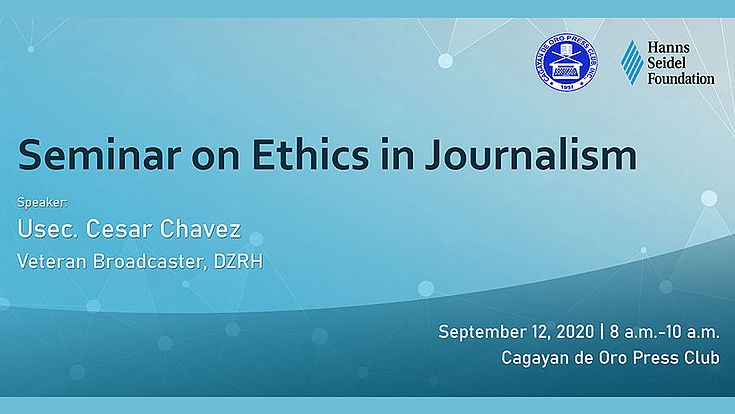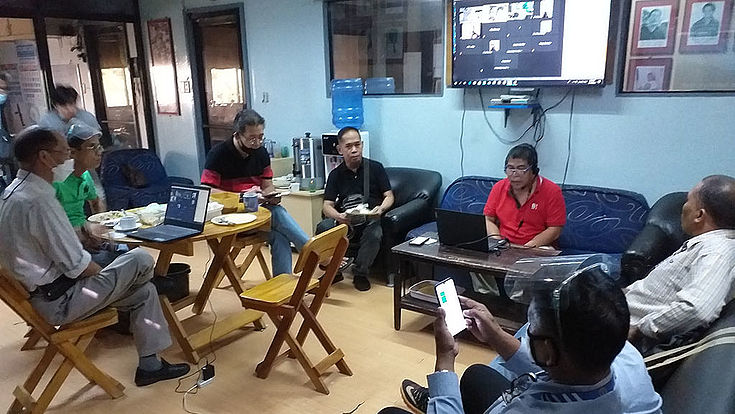Fostering Ethical Standards in Local Media
Seminar on Ethics in Journalism seeks to strengthen local journalism community

HSF
How does ethics in journalism affect our news today? Promoting ethical journalism amongst its members, the Cagayan de Oro Press Club (COPC) organised, “Seminar on Ethics in Journalism” on 12 September 2020 to revisit the club’s Code of Ethics and hold an in-depth discussion on the topic. Central to the exchange were the daily predicaments journalists are pressed to deal with in their line of work and how certain situations coupled by personal conditions may have a way of influencing how news is reported in the media. The hybrid online and in-person activity was attended by a total of fifty-nine participants.
As the world continuously transitions and simultaneously evolves into a multi-media landscape where every individual can produce potentially news-worthy material, the line between consumers and producers of news content sometimes blurs. The responsibility of producing quality journalistic work, of which ethical values is believed by the COPC as an intrinsic part of, rests nevertheless first and foremost on the shoulders of media practitioners. This conversation was intended to remind journalists to be guided in doing what is right under all circumstances.
Discussions during the activity revealed various dire straits that journalists have had to work in or are working in, including political pressure (red-labelling, libel cases), socio-economic difficulties (low pay which was pointed out to gives rise to the opportunity for truth to be compromised) and issues concerning personal subsistence, while striving to deliver factual and accurate information to the public.

HSF
It was reiterated that media practitioners should always seek to observe the highest form of ethical conduct, including towards co-media workers, maintain professionalism in their work in a way that establishes credibility, and follow ethical standards. They would, thusly, be better prepared to respond to challenges in a manner that upholds integrity and promotes ethical values. The COPC declared its intention to continue monitoring its members to make sure that ethics plays a guiding role in their work.
In 2001, the COPC drafted its Code of Ethics or Lagda sa Katarung, which set the common ethical standards in journalism observed by its members until today. Published in Cebuano and in English, the Code is intended to encourage journalists to commit themselves to ‘‘honesty, fairness, independence and respect for the rights of others, as well as to high standards of professionalism in their work.’’
As the media practitioners revisited the COPC’s Code of Ethics, they reaffirmed the values and principles engrained therein and expressed their commitment to abide by these as they fulfil their work as seekers and tellers of truth. The COPC considered this commitment as elemental in helping it to more effectively promote professionalism amongst local journalists. It also emphasised the need to for media organisations to work together in promoting ethics in journalism. Meanwhile, the seminar was appreciated by the members as an opportunity to exchange experiences and gain insights from one another’s personal encounters.
Established in 1951, the COPC has an active membership of around one hundred television and radio broadcasters as well as online and print news writers and reporters based in the Province of Misamis Oriental, and working from all over the country. This activity was organised by the COPC with support from the Hanns Seidel Foundation, which believes journalists are a key player in democracy and peaceful governance.
